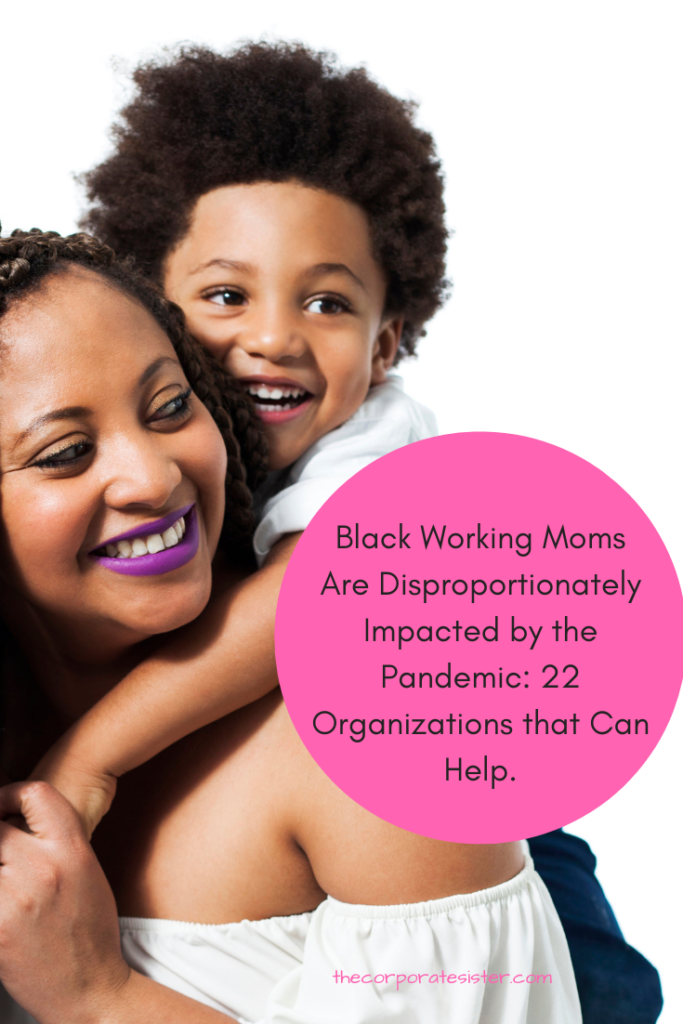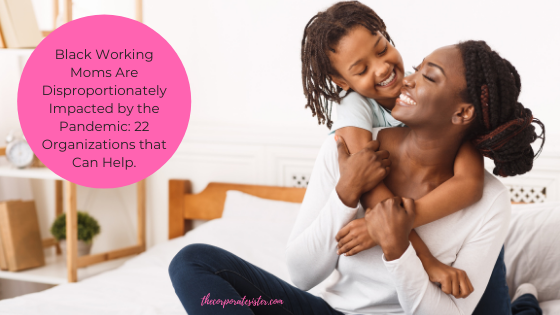If you are a working mom during this pandemic, you certainly have been brutalized by this pandemic. From the lack of childcare to the exodus of women from the workforce, not to mention the astounding and growing imbalance of weight of household chores, the impact of this national crisis for women are mind-blowing. However, due to systemic inequalities affecting Black women, the latter have suffered compounded consequences of this motherhood pandemic within the larger pandemic we’re faced with. Black working moms are struggling at historical rates, and we cannot remain silent…
According to the April 2020 McKinsey “COVID-19: Investing in Black Lives and Livelihoods” report, African-Americans constitute especially vulnerable populations in the face of the pandemic. Black women in particular have to deal with an exacerbated dual burden both on the home and labor front, compounded with quarantine restrictions, school closures, childcare scarcity and household-related stress. This also increases the risks of domestic violence, as it is reported four in ten black women tend to suffer from domestic violence at the hands of an intimate partner, as compared to three in ten white women. Black women are also more prone to suffering from health issues and be affected by high maternal mortality rates, which has only been exacerbated by the pandemic.

While women occupy most of the occupations that have suffered the most from the pandemic, Black women held a disproportionate portion of these jobs. As a result, they also have experienced the most acute unemployment jumps and related gaps. Employment for Black women fell 18.2% for Black women, as compared to 16.7% for white women. In addition, Black and Latina women are most likely to either be the sole breadwinner in their families, or have their partners work outside of the home during the pandemic. Women have lost 1.28 jobs for every job loss by a male, and the recovery is not looking promising either with Black women returning to work 1.5 times slower than their white counterparts. While 71% of white women are reporting having enough income, only 52% of Black women are saying the same.
So how can we help?
Here are 22 organizations helping Black moms and families that can help:
- Black Career Women’s Network: This leading national career development platform is dedicated to enhancing the professional growth of Black women;
- National Coalition of 100 Black Women: Formed in 1981, this organization advocates for Black women in the areas of education, health and economic empowerment.
- Black Women’s Health Imperative: Standing for health equality for all Black women and girls, this is the only national non-profit of its nature.
- National Congress of Black Women: This non-profit institution invests in the educational, political and cultural growth of Black women and youth;
- National Black Women’s Justice Institute: This organization’s mission is to reduce, through research and capacity building, racial and gender disparities in the U.S. criminal system.
- National Council of Negro Women: Started in 1935 by Mary McLeod Bethune, this organization reached nearly 4 million Black women and has more than 30 affiliated Black women’s organizations.
- The Black Women’s Agenda: This DC-based non-profit started in 1977 is committed to sharing and educating on social, economic and civil liberties affecting Black women.
- National Association of Colored Women’s Club: This association of women of color is dedicated to uplifting women and families through their focus on community service, scholarship, and education.
- Black Women’s Playwrights Group: This group supports and promotes Black women playwrights.
- Black Girls Code: This non-profit organization’s vision is to increase the number of women of color in Science, Technology, Engineering and Math (STEM).
- The Loveland Foundation: This foundation provides therapy and other mental health resources For Black girls and women, and is headed by founded Rachel Cargle.
- Sister Love: Sister Love’s mission is to “eradicate the adverse impact of HIV, sexual and reproductive health rights, and justice challenges” facing women.
- Black Mamas Matter: Black Mamas Matter is a movement to advance black maternal health.
- The National Birth Equity Collective: Helping Black children reach their first birthday and reducing the alarming Black maternal mortality rates is the goal of this organization.
- Black Women’s Roundtable: This organization works to purse public policies to benefit Black women in areas related to health and wellness, education, economic security and empowerment.
- Black Women’s Blueprint: This social justice organization provides access to resources for Black women to advocate against intersectionality issues.
- Sista Midwife: Sista Midwife provides a directory of Black midwives and doulas, as research shows Black women using a Black midwife are at lower risk of C-section or preterm birth.
- Black Women’s Wellness: Centered on empowering Black women through healing, empowerment and advocacy, this organization is based in Los Angeles.
- Girl Trek: Girl Trek is a national health movement for Black women to change their lives through walking .
- The Black Feminist Project: This project uses food and reproductive justice programming to empower Black women and girls.
- The Black Youth Project 100: The Black Youth Project fights for freedom and justice for all, more specifically for Black women, girls, and the LGBTQ+ community.
- National Black Child Development Institute: This institute works with Black children from birth to age 8 to offer them a brighter future through health and wellness education, literacy programs, and college readiness.
Black working moms are in crisis, and we ought to help. If you would like to add any organization or statistics to this list, please email us at corporate@thecorporatesister.com.
The Corporate Sister.







